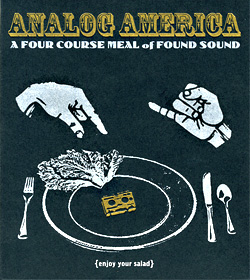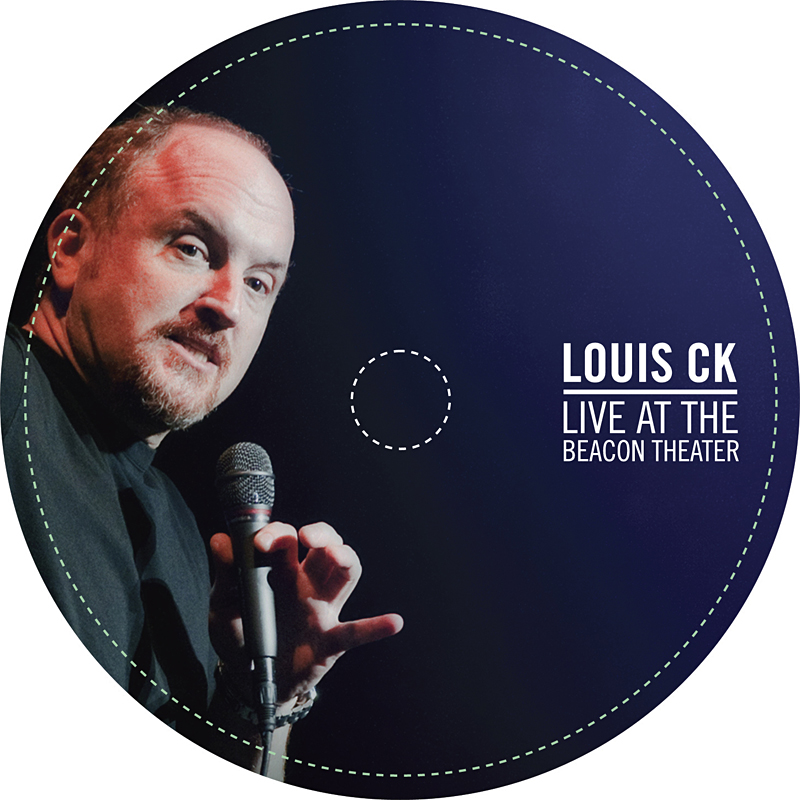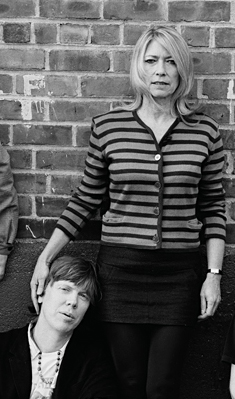The first time I visited Hollow Earth Radio’s basement digs in Phinney Ridge, station co-founder Amber Kai Morgan showed me a stash of answering machine cassettes. They were kept in a mason jar marked “beans.”
As self-proclaimed salvagers of prerecorded sound, Morgan and her boyfriend, Garrett Kelly, are junkies for stuff like this. When the two launched their Internet-only radio station in 2007, part of their intent was to broadcast music otherwise unheard on mainstream radio. The other was to share the collection of found sound they had amassed as fervent thrift-store and yard-sale scavengers.
Kelly and Morgan specialize in answering machine cassettes, which they say often reveal the essence of what it means to be human and, in particular, American. “Growing up, I loved Charles Kuralt’s America, and I’ve always loved This American Life,” says Morgan. “And I’ve watched over and over Andrei Codrescu’s documentary, Road Scholar, about marginalized culture in America. I’m sort of obsessed with this type of thing.”
Their collection of tapes of other people talking is large, to be sure. But the two recently pared it down to 32 favorites and released them on CD last month. Analog America: A Four Course Meal of Found Sound is a compilation of conversations, messages, greetings, arguments, phone transactions, and church meetings—all gleaned from random people’s old cassettes.
Here you’ll find a timid-sounding woman leaving a message requesting prayers from someone, two women casually ending a phone conversation during which one of them must have prepared a salad, and a guy growing frustrated with an unhelpful customer-service rep. The recordings are organized into four categories: Family & Friends, Work, Hobbies, and Religion.
“These recordings are all pretty raw and real,” says Morgan. “And the subject matter is everyday living and universal themes.” She likens it to the Smithsonian Folkways series. “I like how [they] put out various field recordings about American life. Like there’s one field recording I can recall that was put out on Folkways, of a girls’ summer camp in the ’50s. And it was just a recording of cabin life where these girls are gossiping in their cabin. I just love that.”
“Cindy, it’s Jackson. Just wanted to, uh, touch base. I’m assuming that, because I haven’t heard differently, that you’d pick the kids up. Umm…I’m in Chicago…will be getting outta here at about 10 o’clock tonight….”
The above snippet is the ending of “Single Mother,” track six of Analog America. As a whole, this track is a great example of why collecting sound bites is intriguing to folks like Morgan and Kelly. The track is a set of messages they found on a single tape. It begins with a drunken man—presumably the boyfriend of the woman who owns the answering machine—asking to be called back. Next, a school secretary leaves a message informing the woman that her son is failing school, followed by an automated message from Hollywood Video stating that her rentals are overdue.
Next, the boyfriend calls back, but his message is cut off when the woman picks up the phone. Their conversation is recorded and we hear her lie to him, saying she never got his first message. The next message, quoted above, is from her ex-husband, calling collect from Chicago.
On one tiny answering machine tape, we’re given a week-in-the-life snapshot of this woman’s predicaments. We can assume she’s a divorced single mother, with a son failing school and a boyfriend she is not particularly fond of. On top of that, she forgot to return the movies she rented last weekend.
Imagine tape recorders placed in the middle of Raymond Carver stories—that’s what Analog America sounds like. On the track titled “Scooby,” a mother talks on the phone with her infant son about what he watched on TV. The father is in the room with the son, but only pays attention to him when he’s doing something wrong, such as beating a hammer against a table (“Don’t”). On “Driving Cabs,” a man named Art leaves a message, presumably for a wife he’s recently separated from, explaining, “I’ve been driving cab for three days, getting up at 3:45 in the a.m., just tryin’ to get it, uh, get things under control.”
“I think that by listening to all of the Family & Friends messages, one could gather that we all play roles within our families and friendships and we react in typical ways,” says Morgan. “That’s the most uncanny thing to me about these tapes; I hear the same types of conversation patterns or situations over and over again with different people.
“The Work section is so freaking serious,” she adds. “I think they demonstrate how it takes over our lives and how Americans allow work to define who we are. After listening to the Work section, I am totally ready for the Hobby section!”
If nothing else, she says, the compilation documents a not-so-distant pre-digital phone history, when analog tape recorders were our main form of leaving messages for each other. To borrow from Carver, Analog America is what we talk about when we talk via machines.








